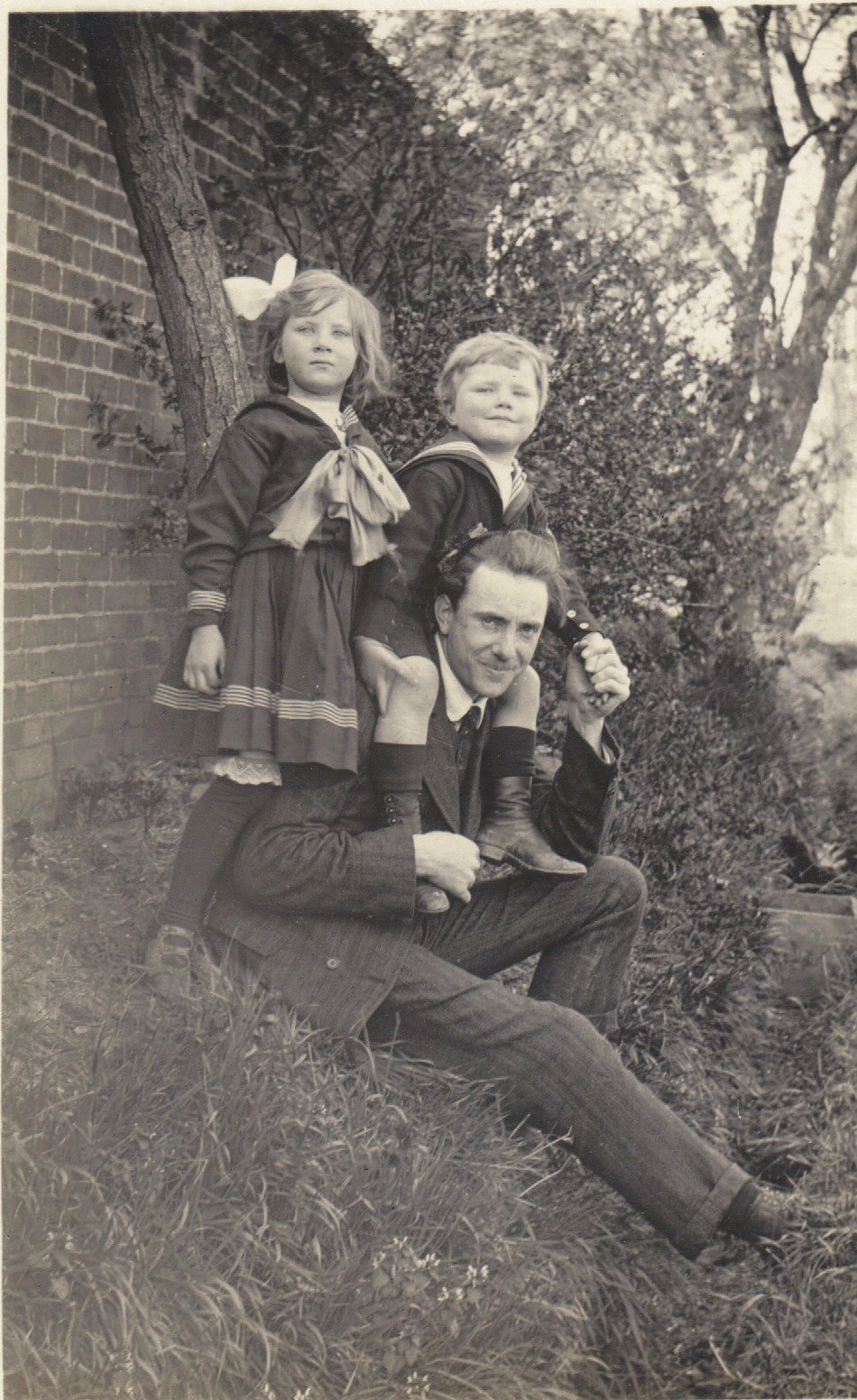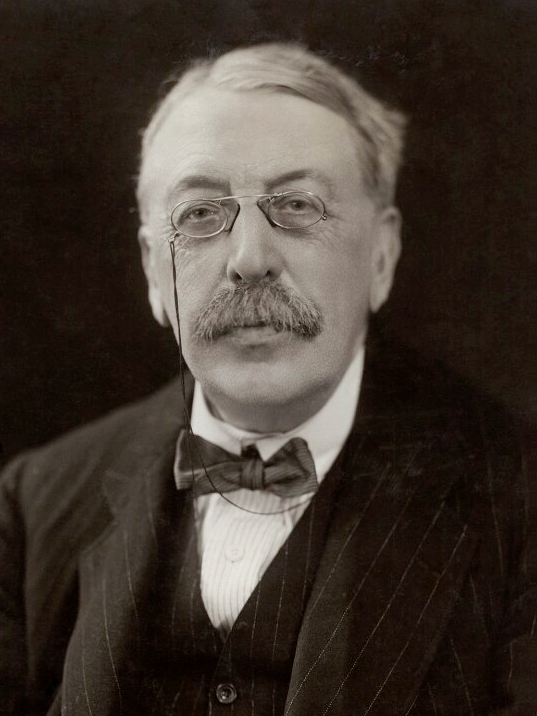|
Charles Kennedy Scott
Charles James Kennedy Osborne Scott (16 November 18762 July 1965) was an English organist and choral conductor who played an important part in developing the performance of choral and polyphonic music in England, especially of early and modern English music. Early career Scott was born in Romsey. Educated at Southampton Grammar School, he entered the Brussels Conservatory in 1894. Beginning by studying the violin, he transferred to the organ under the outstanding virtuoso and teacher Alphonse Mailly, who encouraged a special interest in plainchant and in the Musical phrasing, phrasing of Johann Sebastian Bach's organ music: he also studied composition under Hubert Ferdinand Kufferath (1818–1896) (a pupil of Felix Mendelssohn, Mendelssohn's), teacher of counterpoint and fugue, and under the organist-composer Edgar Tinel (1854–1912). In 1897 he took the ''Premier Prix avec distinction'' and the ''Mailly Prize'' for organ playing. He settled in London in 1898 as a professional ... [...More Info...] [...Related Items...] OR: [Wikipedia] [Google] [Baidu] |
Romsey
Romsey ( ) is a town in the Test Valley district of Hampshire, England. The town is situated northwest of Southampton, southwest of Winchester and southeast of Salisbury. It sits on the outskirts of the New Forest, just over northeast of its eastern edge. The population of Romsey was 14,768 at the 2011 census. Romsey is one of the principal towns in the Test Valley Borough and lies on the River Test, which is known for fly fishing, predominantly trout. In 2019, the town centre underwent substantial remodelling, removing the roundabout around the statue of Lord Palmerston, and creating a pedestrianised area. Romsey was home to the 17th-century philosopher and economist William Petty and the 19th-century British prime minister, Lord Palmerston, whose statue has stood in the town centre since 1857. The town was also home to the 20th-century naval officer and statesman Louis Mountbatten, 1st Earl Mountbatten of Burma, who lived at Broadlands. Romsey Abbey, the largest pari ... [...More Info...] [...Related Items...] OR: [Wikipedia] [Google] [Baidu] |
CKS Cwa Bab 1908
CKS may refer to: Transport * Clarkston railway station, which has the National Rail code CKS * The former IATA airport code for Taiwan Taoyuan International Airport (IATA: TPE), which was formerly known as Chiang Kai-shek International Airport * The ICAO code for Kalitta Air * Chu Kong Passenger Transport Co., Ltd (CKS), a Hong Kong ferry company Other uses *CKS Group, an American advertising company * Checksum, to detect data errors * Chiang Kai-shek (1887–1975), Chinese politician and military leader * Chiyoda Kogaku Seiko was a Japanese manufacturer of cameras, lenses, camera accessories, photocopiers, fax machines, and laser printers. Minolta Co., Ltd., which is also known simply as Minolta, was founded in Osaka, Japan, in 1928 as . It made the first integrated ..., a Japanese camera manufacturer * Ciné-Kodak Special, a series of video cameras (made 1930s–1960s) {{disambig ... [...More Info...] [...Related Items...] OR: [Wikipedia] [Google] [Baidu] |
Mater Ora Filium
M.A.T.E.R. (''Motori Alimentatori Trasformatori Elettrici Roma'', often referred to as M.A.T.E.R. Roma) was an Italian association football club located in Rome. It was dissolved in 1945 for lack of funds. ''Corrie dello Sport Newspaper''. Retrieved 3 June 2025 Its colors were purple and green. The club took part in the 1942–43 season, then it did not survive WW2
World War II or the Secon ...
[...More Info...] [...Related Items...] OR: [Wikipedia] [Google] [Baidu] |
Two Songs To Be Sung Of A Summer Night On The Water
Two Songs to be sung of a summer night on the water, Op. 91, were composed by Frederick Delius in 1917. He set the wordless works for choir a cappella. The songs were published in 1920 and first performed in 1921. History Delius composed the songs at Grez-sur-Loing in 1917. He set them for six-part choir, SATTBB, without words, but vocalises on the syllable "uh". The first song is marked "slow but not dragging", the other which features a solo tenor is marked "gaily, but not quick". A reviewer noted that especially the first song is an example of his "chromatic harmonic language". The wordless pieces have been described as among the composer's "most transcendently ecstatic moments ... as if no words could adequately convey the peculiar fullness of the moment". Only the title serves as a program for the "gratuitous blithesomeness of these two brief yet beguiling choral pieces". The songs were premiered in London by Charles Kennedy Scott and his Oriana Madrigal Society in Londo ... [...More Info...] [...Related Items...] OR: [Wikipedia] [Google] [Baidu] |
Hubert Parry
Sir Charles Hubert Hastings Parry, 1st Baronet (27 February 1848 – 7 October 1918), was an English composer, teacher and historian of music. Born in Richmond Hill, Bournemouth, Parry's first major works appeared in 1880. As a composer he is best known for the choral song "And did those feet in ancient time#By Hubert Parry, Jerusalem", his 1902 setting for the coronation anthem "I was glad", the choral and orchestral ode ''Blest Pair of Sirens'', and the hymn tune "Repton", which sets the words "Dear Lord and Father of Mankind". His orchestral works include five symphonies and a set of Symphonic Variations. He also composed the music for ''Ode to Newfoundland'', the Newfoundland and Labrador provincial anthem (and former national anthem). After early attempts to work in insurance at his father's behest, Parry was taken up by George Grove, first as a contributor to Grove's massive ''The New Grove Dictionary of Music and Musicians, Dictionary of Music and Musicians'' in the 1870 ... [...More Info...] [...Related Items...] OR: [Wikipedia] [Google] [Baidu] |
Charles Villiers Stanford
Sir Charles Villiers Stanford (30 September 1852 – 29 March 1924) was an Anglo-Irish composer, music teacher, and conductor of the late Romantic music, Romantic era. Born to a well-off and highly musical family in Dublin, Stanford was educated at the University of Cambridge before studying music in University of Music and Theatre Leipzig, Leipzig and Berlin. He was instrumental in raising the status of the Cambridge University Musical Society, attracting international stars to perform with it. While still an undergraduate, Stanford was appointed organist of Trinity College, Cambridge. In 1882, aged 29, he was one of the founding professors of the Royal College of Music, where he taught composition for the rest of his life. From 1887 he was also Professor of Music (Cambridge), Professor of Music at Cambridge. As a teacher, Stanford was sceptical about Modernism (music), modernism, and based his instruction chiefly on classical principles as exemplified in the music of Joha ... [...More Info...] [...Related Items...] OR: [Wikipedia] [Google] [Baidu] |
Philharmonic Society
The Royal Philharmonic Society (RPS) is a British music society, formed in 1813. Its original purpose was to promote performances of instrumental music in London. Many composers and performers have taken part in its concerts. It is now a membership society, and while it no longer has its own orchestra, it continues a wide-ranging programme of activities which focus on composers and young musicians. Since 1989, the RPS has promoted the annual Royal Philharmonic Society Music Awards for live music-making in the United Kingdom. The RPS is a registered UK charity No. 213693, located at 48 Great Marlborough Street in London. The current chief executive of the RPS is James Murphy, and its current chairman is John Gilhooly. History In London, at a time when there were no permanent London orchestras, nor organised series of chamber music concerts, a group of thirty music professionals formed the ''Philharmonic Society of London'' on 6 February 1813. The idea was that by cooperati ... [...More Info...] [...Related Items...] OR: [Wikipedia] [Google] [Baidu] |
Roger Quilter
Roger Cuthbert Quilter (1 November 1877 – 21 September 1953) was a British composer, known particularly for his art songs. His songs, which number over a hundred, often set music to text by William Shakespeare and are a mainstay of the English art song tradition. Biography Quilter was born in Hove, Sussex; a commemorative blue plaque is on the house at 4 Brunswick Square. He was a younger son of William Quilter, Sir William Quilter, 1st Baronet, a wealthy noted landowner, politician and art collector. Roger Quilter was educated first in the preparatory school at Farnborough, Hampshire, Farnborough. He then moved to Eton College and later became a fellow-student of Percy Grainger, Cyril Scott and H. Balfour Gardiner at the Hoch Conservatory in Frankfurt, where he studied for almost five years under the guidance of the German professor of composition Iwan Knorr.Hold, Trevor, Quilter belonged to the Frankfurt Group, a circle of composers who studied at the Hoch Conservatory in ... [...More Info...] [...Related Items...] OR: [Wikipedia] [Google] [Baidu] |
Benjamin Dale
Benjamin James Dale (17 July 188530 July 1943) was an English composer and academic who had a long association with the Royal Academy of Music. Dale showed compositional talent from an early age and went on to write a small but notable corpus of works. His best-known composition is probably the large-scale Piano Sonata in D minor he started while still a student at the Royal Academy of Music, which communicates in a potent late romantic style. Christopher Foreman has proposed a comprehensive reassessment of Benjamin Dale's music.Foreman, Christopher (2011).Benjamin Dale—A reassessment, Parts 1 & 2. MusicWeb International. Retrieved 2011-07-07.Foreman, Christopher (2011). MusicWeb International. Retrieved 2011-07-07. Dale married one of his students, the pianist and composer Kathleen Richards in 1921. Early life and education Benjamin Dale was born in Upper Holloway, Islington, London, to Charles James Dale, a pottery manufacturer from Staffordshire, and his wife, Frances Anne ... [...More Info...] [...Related Items...] OR: [Wikipedia] [Google] [Baidu] |
Percy Grainger
Percy Aldridge Grainger (born George Percy Grainger; 8 July 188220 February 1961) was an Australian-born composer, arranger and pianist who moved to the United States in 1914 and became an American citizen in 1918. In the course of a long and innovative career he played a prominent role in the revival of interest in Music of the United Kingdom, British folk music in the early years of the 20th century. Although much of his work was experimental and unusual, the piece with which he is most generally associated is his piano arrangement of the Folk dance, folk-dance tune "Country Gardens". Grainger left Australia at the age of 13 to attend the Hoch Conservatory in Frankfurt. Between 1901 and 1914 he was based in London, where he established himself first as a society pianist and later as a concert performer, composer, and collector of original folk melodies. As his reputation grew he met many of the significant figures in European music, forming important friendships with Frederic ... [...More Info...] [...Related Items...] OR: [Wikipedia] [Google] [Baidu] |
Gustav Holst
Gustav Theodore Holst (born Gustavus Theodore von Holst; 21 September 1874 – 25 May 1934) was an English composer, arranger and teacher. Best known for his orchestral suite ''The Planets'', he composed many other works across a range of genres, although none achieved comparable success. His distinctive compositional style was the product of many influences, Richard Wagner and Richard Strauss being most crucial early in his development. The subsequent inspiration of the English folk music#Folk revivals 1890–1969, English folksong revival of the early 20th century, and the example of such rising modern composers as Maurice Ravel, led Holst to develop and refine an individual style. There were professional musicians in the previous three generations of Holst's family, and it was clear from his early years that he would follow the same calling. He hoped to become a pianist, but was prevented by neuritis in his right arm. Despite his father's reservations, he pursued a c ... [...More Info...] [...Related Items...] OR: [Wikipedia] [Google] [Baidu] |





